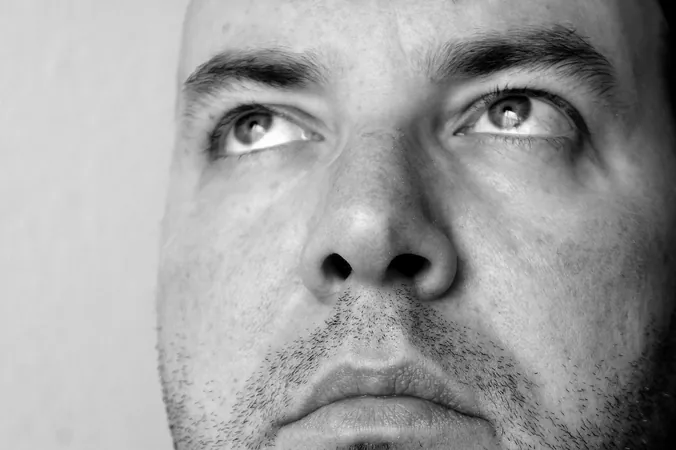
Vitamin D Nasal Spray: A Game-Changer for Smell Loss?
2025-04-09
Author: Nur
Revolutionary Idea: Spraying Vitamin D Nasally
At first, it sounded outlandish: spraying vitamin D directly into the nose? Dr. Jennifer Mulligan, co-director of the University of Florida Health Smell Disorders Program, was skeptical. In 2012, her team attempted a clinical trial using oral vitamin D supplements to combat nasal inflammation that often leads to a loss of smell. The results? A dismal zero percent success rate for all 28 participants.
A Breakthrough for Treating Nasal Inflammation
Fast forward to today, and Mulligan and her colleagues believe they may have stumbled upon a groundbreaking solution. Their recent study, published in the prestigious journal International Forum of Allergy & Rhinology, showed that a vitamin D nasal spray significantly decreased nasal inflammation and restored sense of smell in mice—suffering from inflammation caused by cigarette smoke. This promising treatment, featuring calcitriol, could also tackle smell loss triggered by conditions like COVID-19.
"Currently, options for treating inflammation-related smell loss are limited," Mulligan explains. "This research could potentially benefit countless individuals who have lost this vital sense." Although only tested on mice so far, previous work with human tissue increases hope that this treatment could be successful in people. However, extensive research and human trials are still necessary.
Why Standard Vitamin D Supplements Fall Short
Historically, medical practice has favored oral vitamin D supplements to address deficiencies, especially in smokers whose nasal tissue often lacks this crucial vitamin. Yet, the problem with oral supplements is that they require a specific enzyme for conversion to the active form, calcitriol, which is often absent in those with sinonasal inflammation. Without this enzyme, vitamin D can't interact effectively with nasal cells.
Instead of relying on the traditional route, the team decided to administer calcitriol via nasal spray, bypassing the need for metabolism entirely. "We're skipping the middleman," Mulligan said. Direct application ensures that vitamin D reaches its target in concentrated form, rather than being diluted in the bloodstream.
A Promising Future for Smell Restoration
In their study, treated mice experienced significant recovery in their sense of smell, almost comparable to healthy young mice. In an experiment involving a maze, treated mice successfully avoided areas with unpleasant odors, while those with untreated nasal inflammation were oblivious.
CT scans further confirmed that the sprayed mice had markedly less nasal blockage, showcasing both the treatment's efficacy and the essential role of vitamin D in immune response and tissue health. Beyond just promoting stronger bones, vitamin D appears to be key in restoring sensory functions.
The Cost of Current Treatments and Future Prospects
With few effective treatments available, options like surgery or expensive lab-produced antibodies (which can run up to $30,000 a year) aren’t always viable. Mulligan’s lab, affectionately nicknamed "Team Sinus," continues to make strides in this innovative approach, even sporting a custom orange and blue coffee mug adorned with sinuses.
In summary, this exciting research has the potential to offer a fresh lifeline to many grappling with loss of smell, illuminating a new path forward in medical treatment.


 Brasil (PT)
Brasil (PT)
 Canada (EN)
Canada (EN)
 Chile (ES)
Chile (ES)
 Česko (CS)
Česko (CS)
 대한민국 (KO)
대한민국 (KO)
 España (ES)
España (ES)
 France (FR)
France (FR)
 Hong Kong (EN)
Hong Kong (EN)
 Italia (IT)
Italia (IT)
 日本 (JA)
日本 (JA)
 Magyarország (HU)
Magyarország (HU)
 Norge (NO)
Norge (NO)
 Polska (PL)
Polska (PL)
 Schweiz (DE)
Schweiz (DE)
 Singapore (EN)
Singapore (EN)
 Sverige (SV)
Sverige (SV)
 Suomi (FI)
Suomi (FI)
 Türkiye (TR)
Türkiye (TR)
 الإمارات العربية المتحدة (AR)
الإمارات العربية المتحدة (AR)